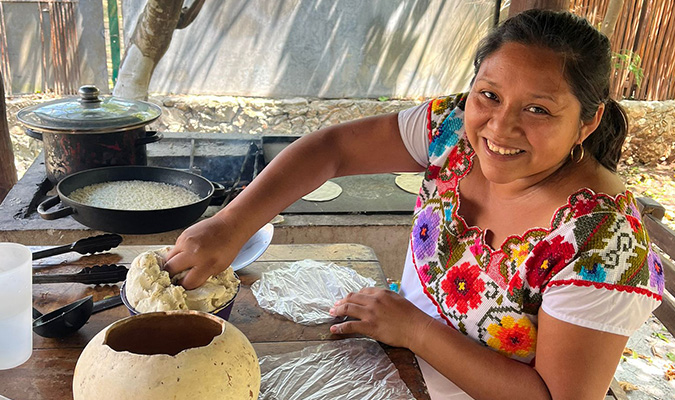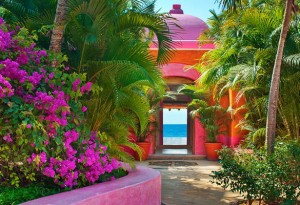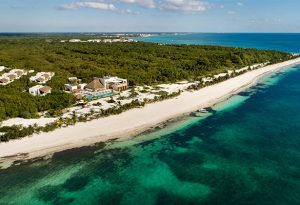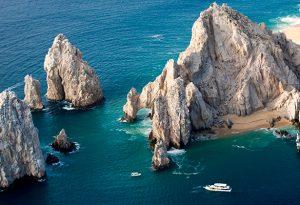Our Positive Impact Fund (PIF) – previously known as our Responsible Travel Fee – launched on March 01, 2024, with 100% of the funds going directly to handpicked NGOs in Mexico.
By requesting this donation from each of our guests, together, we can make a positive difference to Mexico´s extraordinary natural world and its wonderful people. We believe that travel and business hold the power to transform; the same reason we proudly became B-corp certified in October 2023.
Each of the civil societies we support have been chosen because of their tangible impact on the biodiversity, traditions, and communities that make Mexico so special. Read below to find out about the non-profit organizations we´re partnering with or head over to our sustainability page to learn more about how the fee works.
MUNDO MAYA HACIENDAS FOUNDATION
Where: Yucatán, Campeche and Quintana Roo states
Catalyst: In the early 90s, a group of Mexican entrepreneurs created Las Haciendas, restoring former henequen plantations and haciendas – with the input and employment of residents – into a route of boutique hotels as a model of sustainable tourism to generate a socio-economic impact at a micro-regional level.
The next step was the creation of the Haciendas del Mundo Maya Foundation A.C. in 2002, after Hurricane Isidore stormed through the Yucatán Peninsula, to improve the quality and living conditions of the Mayan communities, while respecting and preserving local culture and the environment.
Goals: The foundation strives to strengthen the capacities and skills of the residents of Mayan communities in the Yucatán Peninsula, generating microregional development hubs with the participation of residents as promoters of their own projects. This helps to foster the identity, recognition, and preservation of Maya culture whilst working towards eradicating poverty and the social marginalization of communities.
Strategy: The implementation of economic and social development projects is framed within the foundation´s Comprehensive Community Development Program, including initiatives such as:
- Traspatio Maya: A gourmet food brand created by the foundation and produced by Mayan communities to promote new local economic alternatives and contribute to the conservation of local biodiversity. Products include pink salt, salt foam, salt pyramids, and salt seasoned with habanero or achiote, Melipona honey and Tajonal and Tsisilché flower honeys.
- Taller Maya: This brand, with lines in fashion, home, jewelry, children, spa, and special collections, was started by forming groups of Mayan craftswomen and collaborating with designers to create contemporary, high-quality pieces that revive traditional techniques and materials. The foundation works alongside the craftswomen to establish and strengthen social enterprises, as well as provide ongoing support for production and administration processes.
- Las Haciendas Spas: Building on the traditional knowledge of Maya massage practitioners, in 2004, Mundo Maya incorporated formal training for spa therapists, establishing five spas in Las Haciendas and forming a service cooperative, which is now 100% self-managed.
Impact:
- The involvement of community members in building a shared vision for the future and selecting strategies to materialize it.
- The sustainable utilization of natural resources and respect for the environment.
- Rescuing traditional Mayan medicine and herbalism, strengthening the overall health of families and improving access to primary care.
- Access to education through an educational project constructed by the community members, integrating cultural elements specific to Mayan culture.
- Local income generation, the creation of fair-trade social enterprises, and their integration into the formal productive sector.
- Improved housing in rural communities in Yucatán through a Self-Construction Housing and Infrastructure program; the foundation provides materials and oversight while families manage the construction process themselves.
- Benefitting over 200 women from different communities who work with the brand Taller Maya and reviving traditional Yucatán craft techniques like henequen (foot loom, corking, and backstrap loom), hand and machine embroidery, horn and stone carving, Guatemalan loom, hammock warping, Sansevieria fiber extraction, palm weaving, silver filigree, seedwork, candles, and soaps.
Learn more at https://www.haciendasmundomaya.org/
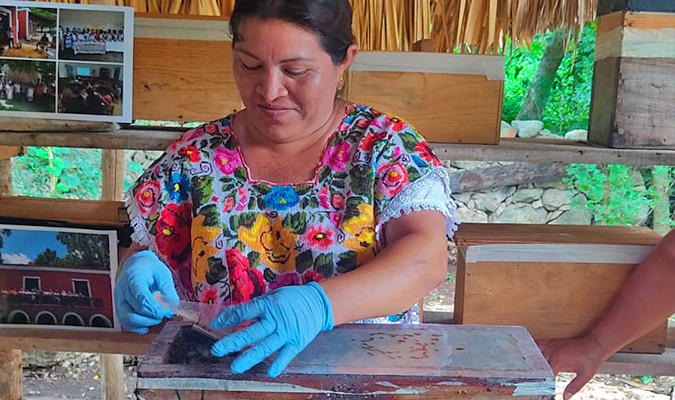
Xochimilco Agroecological Initiative (IAX)
Where: Mexico City
Catalyst: Urbanization has led to the decline of the chinampa farming tradition, with 16.69% of the chinampa area now urbanized and 49.61% abandoned and at risk. Despite Xochimilco’s cultural significance as a UNESCO World Heritage Site and a globally recognized agricultural system, Mexico City’s rapid expansion threatens its survival. The displacement of farmers and abandonment of traditional farming techniques for more profitable commerce are eroding Xochimilco’s traditional essence and cultural identity.
Goal: To preserve and restore the chinampa agricultural system while promoting sustainable farming practices. The initiative aims to protect Xochimilco’s unique ecological and cultural heritage, support local farmers, and prevent further urbanization of the chinampa zone.
Strategy: The IAX aims to restore and protect the chinampa system through sustainable farming, water management, and community engagement. Its strategy includes rehabilitating abandoned chinampas, promoting agroecological practices, supporting farmers with training and financial incentives, and improving water quality. Some initiatives include:
- Arca Tierra: Project based on three fundamental pillars – the restoration of chinampas, the sale of vegetables, and chinampa experiences. The agroecological community comprises a network of 65 farming families or chinamperos, 35 chefs, eight food artisans, and two artists, all with shared missions of revitalizing and protecting traditional agricultural practices and promoting fair trade.
- La Escuela Campesina: The Farmers’ School is an innovative six-month program designed to train participants as young chinampa farmers with the knowledge, values, and skills necessary to analyze, apply, and promote a sustainable and viable agricultural development model. The program aims for participants to engage in the rehabilitation of abandoned chinampas, generate employment, and contribute to the recovery of traditional farming knowledge.
- Adopt a Chinampa: Abandoned chinampas are restored for production, including planting traditions, festivities, biocultural heritage, and traditional cuisine. The recovery of an abandoned chinampa is a six-month process that involves diagnosis, design, and planning before being carried out.
Impact:
- If a chinampa is productive and not abandoned, it cannot be built upon, which contributes to the effort to contain urban sprawl and work toward food sovereignty in Mexico City.
- Using a chemical-free agroecological production method (chinampas) has a positive ecological impact; it restores soil, cleans the water, reforests, and sequesters carbon in the soil, helping to reverse climate change.
- Chinampa experiences include public events featuring synergies with renowned chefs and private events where guests can enjoy the scenery, cuisine, and beauty of the location, while learning about its importance.
- The promotion of sustainable development through environmental awareness in schools, providing support for the “Green School” Environmental Certification, fostering the exchange of experiences, conducting outreach campaigns, and strengthening educational centers by promoting “eco tips.”
- Collaborations with schools to successfully establish specific gardens that protect pollinators.
- Significant action in sea turtle conservation on the Oaxacan coast, particularly in camps like Barra de la Cruz, Escobilla, Tierra Colorada, and Cahuitán.
- Helping to shape public conservation and biodiversity policies by working in collaboration with institutions such as CONABIO and SADER.
- Creation of a self-sustaining productive chinampa; helping to conserve genetic resources for food and agriculture.
Contribution to biodiversity conservation through direct actions in protected natural areas and efforts aimed at safeguarding endangered species. - Engagement in the rehabilitation of abandoned chinampas, generation of employment, and contribution to the recovery of traditional and sustainable farming knowledge.
Learn more (Spanish) at https://iaxmx.org/ https://www.arcatierra.com/
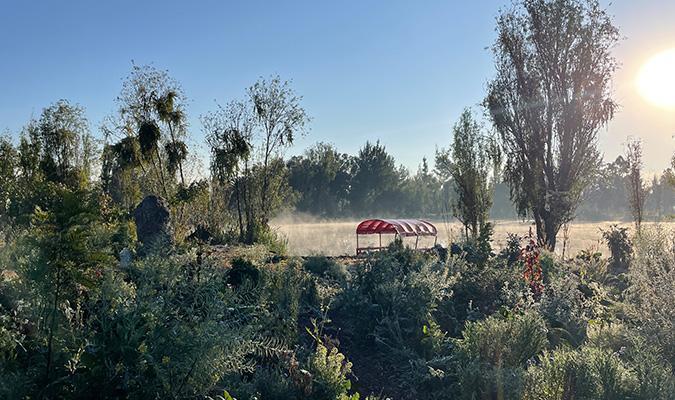
Xochimilco
Making a Positive Impact
Check out the links below to learn about more of Journey Mexico´s responsible travel initiatives:
Our Approach to Sustainable Tourism
Journey Mexico´s Sustainability Committee
Creating Change: Our Commitment to Sustainability and Community Impact
Virtuoso Sustainability Community
#JourneyGivesBack
Start Planning your Positive Impact Vacation to Mexico
Get in touch with one of our travel planners to learn about how you can incorporate regenerative travel experiences with Mundo Maya Foundation into your personalized itinerary. Custom made trips to Mexico City and the Yucatan Peninsula start at $1,000 USD per day for two travelers.

